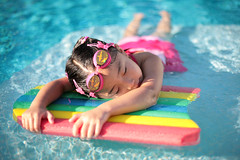
Even when you are right there next to your child to offer comfort, care and treatment, accidents and injuries can be difficult to deal with. So as we prepare our kids to go to summer camp, it is important to ask some questions of the camp and prepare our children well. That way, everyone can rest assured they are having a summer of fun and making memories to last a lifetime in a safe environment.
We’ve discussed many issues parents need to consider when choosing a camp, enrolling their child and sending them on their way on this blog. As we get closer to the start of camp, here is a list of things to ensure are in place as you get your family ready for a summer away:
- Camp is accredited by the American Camp Association. This requires camps to follow certain guidelines, including counselor to child ratios and other safety procedures.
- Camp requires staff safety training.
- Camp has emergency contact information for your child.
- Camp has been notified of any medical conditions and/or allergies your child has. Be sure to be specific when you communicate with the staff. Let the camp know the specific name of the condition as well as warning signs and steps to take to help your child. Click here for an ACA article on administering medications at camp.

- Camp has provided written health protocols and policies.
Beyond physical safety concerns, ask how the camp deals with homesickness. We’ve talked about that topic on this blog as well and will also be discussing staying connected in next week’s post.
Just as the camp can have multiple safety policies and procedures for kids, it is also important for our young ones to learn how to stay safe independently. So take the time (repeatedly) to ensure that you and your child
- Know what’s safe and what isn’t. Review the camp’s handbooks for rules of conduct for campers. Review these with your child before he or she leaves for camp.
- Understand which kinds of behavior are acceptable and which aren’t. Breaking the rules can put others in dangerous situations.
- Have good hygiene practices. Cover sneezes and coughs with their elbows (not their hands) and wash hands frequently.
- Know when to notify a staff member and ask for help. Not every bump and bruise requires medical attention – make sure you and your child knows which is which. Each AFSC camp has a health center with four to six nurses present (depending on the camp) and a doctor that is on campus or visits daily.
These are all fairly simple ideas to keep families safe and camp is no different. If, as parents, we do our research, read the parent handbooks and camper manuals, ask all the right questions and talk with our children, everyone spends the summer relaxing, being cared for and as safe as possible. For more information, visit the ACA website and read more about this and other camp topics on their parent pages.
Thanks to Tom@HK and cjc4544 for the photos!
Susan


 570-798-9831
570-798-9831
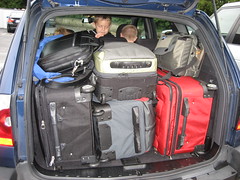
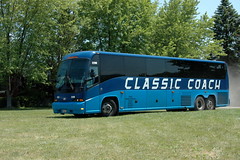 Option 2 – The Magic Bus
Option 2 – The Magic Bus When your child arrives at the destination airport, camp chaperones meet him or her at the gate and provide escort to baggage claim and to onto a camp shuttle or bus. Be sure to review the current
When your child arrives at the destination airport, camp chaperones meet him or her at the gate and provide escort to baggage claim and to onto a camp shuttle or bus. Be sure to review the current 
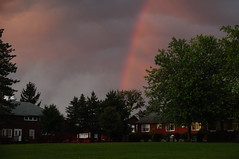 Miller knows that some families have reservations about sending their children to a full-season, seven-week camp, especially when campers can start as young as third or fourth grade, but the benefits are tremendous. Rather than kids moving from camp to camp, week to week, there is truly time for kids to unwind, escape from the outside world and all its pressures and disconnect from technology. This type of summer program provides a real opportunity for kids to be themselves, get to know each other and make friendships that truly last a lifetime. There is no question that this is why such an extraordinarily high rate of campers return summer after summer. The summer is also long enough to do full season camp and still have family time to visit relatives or have a family vacation before school starts.
Miller knows that some families have reservations about sending their children to a full-season, seven-week camp, especially when campers can start as young as third or fourth grade, but the benefits are tremendous. Rather than kids moving from camp to camp, week to week, there is truly time for kids to unwind, escape from the outside world and all its pressures and disconnect from technology. This type of summer program provides a real opportunity for kids to be themselves, get to know each other and make friendships that truly last a lifetime. There is no question that this is why such an extraordinarily high rate of campers return summer after summer. The summer is also long enough to do full season camp and still have family time to visit relatives or have a family vacation before school starts.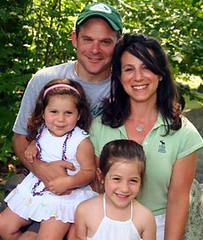 “There’s something special about camping in Maine”, says Jem Sollinger, director of
“There’s something special about camping in Maine”, says Jem Sollinger, director of 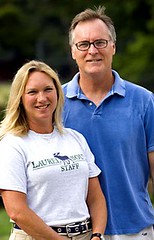

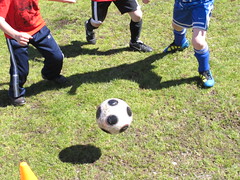





 The Bottom Line
The Bottom Line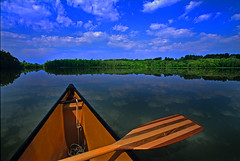 It’s that time of the year again. Time for me to start thinking about what to do with my kids over summer time. Summer time. Remember those lazy, hazy days spent jumping between friends, sports, ice cream, the pool or the lake, back for more ice cream, camping, back to the pool or the lake …? Remember how it was? Evenings spent running until dusk, toasting marshmallows around the camp fire or BBQ, sleeping under the stars and telling tall tales with your friends. Yes, those were the days. Days full of friends. Days full of fun. Days full of life. Those are the kinds of days I dream of for my kids. Don’t you?
It’s that time of the year again. Time for me to start thinking about what to do with my kids over summer time. Summer time. Remember those lazy, hazy days spent jumping between friends, sports, ice cream, the pool or the lake, back for more ice cream, camping, back to the pool or the lake …? Remember how it was? Evenings spent running until dusk, toasting marshmallows around the camp fire or BBQ, sleeping under the stars and telling tall tales with your friends. Yes, those were the days. Days full of friends. Days full of fun. Days full of life. Those are the kinds of days I dream of for my kids. Don’t you?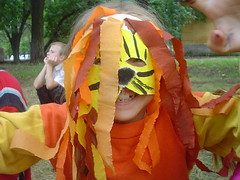 This is a blog dedicated to those days and our kids. It’s a blog about friendship, good times, creating memories and building independence. It’s about getting back to basics and building healthy individuals and families. Our aim is simple: create a place where past, present and future campers and their families can share and immerse themselves in the spirit of camp, its culture, life and lessons over the seasons. We’ll cover the seasons of camp – from getting your kids ready and choosing a camp, through the active camp season and into the memories of camp experiences past. We hope you’ll ask questions and share your stories about camp and camp life. We look forward to sharing tips and hints as well as resources we have found to be helpful. We really look forward to your pictures and we hope someday you’ll come and visit and stay with us!
This is a blog dedicated to those days and our kids. It’s a blog about friendship, good times, creating memories and building independence. It’s about getting back to basics and building healthy individuals and families. Our aim is simple: create a place where past, present and future campers and their families can share and immerse themselves in the spirit of camp, its culture, life and lessons over the seasons. We’ll cover the seasons of camp – from getting your kids ready and choosing a camp, through the active camp season and into the memories of camp experiences past. We hope you’ll ask questions and share your stories about camp and camp life. We look forward to sharing tips and hints as well as resources we have found to be helpful. We really look forward to your pictures and we hope someday you’ll come and visit and stay with us!